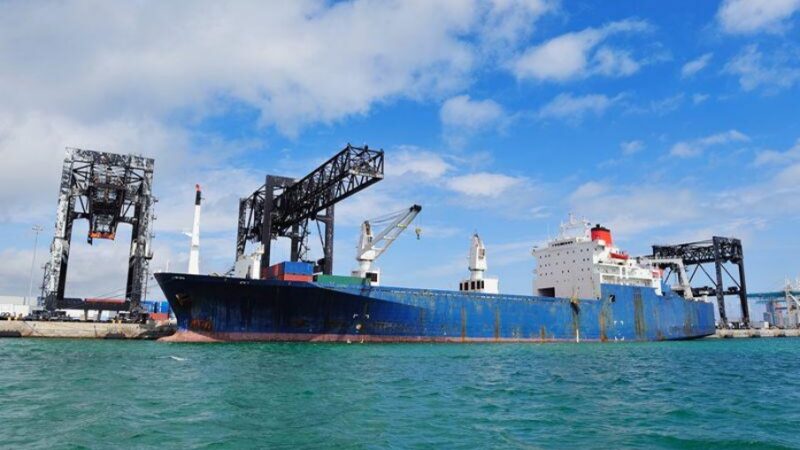Business Analytics for Supply Chain Cost Optimization in Mumbai Businesses

Mumbai, the financial hub of India, is home to many companies in a wide range of sectors, including manufacturing, retail, and logistics. Optimizing the supply chain to cut costs is one of the most important parts of operating a successful company in Mumbai’s cutthroat market. In this process, business analytics is essential because it gives companies the information they need to optimize operations, boost productivity, and make well-informed choices. There is a growing need for workers with analytics skills as supply chains becoming more complicated. Enrolling in a business analysis course is a great approach for individuals who want to work in this sector to get the knowledge and skills necessary to promote supply chain optimization.
This article will look at how supply chain management in Mumbai may gain from using business analytics, including enhanced profitability, better operational efficiency, and cost optimization. Additionally, we’ll highlight how professionals can benefit from pursuing a business analyst course to gain the necessary skills for implementing data-driven strategies in supply chain management.
The Role of Business Analytics in Supply Chain Management
Using data to provide insights that aid in improved decision-making for firms is known as business analytics. Analytics may be used in supply chain management to estimate demand, optimize inventory, save transportation costs, track key performance indicators (KPIs), and manage supplier relationships. For Mumbai businesses, where high population density and diverse consumer demands present unique supply chain challenges, data analytics offers a competitive edge by enabling companies to operate more efficiently.
Professionals may learn how to gather, evaluate, and interpret data about the supply chain to find inefficiencies and areas where money can be saved by taking a business analyst course. Predictive analytics is a field that a business analysis course may aid with by introducing different tools and approaches that can help organizations keep ahead of market swings and foresee future issues.
Analytics-Based Inventory Management Optimization
In every supply chain, efficient inventory management is essential to cutting costs. Holding too much inventory ties up capital, while holding too little can result in stockouts and missed sales opportunities. In a city like Mumbai, where demand for goods can fluctuate rapidly due to its dynamic consumer base, businesses need to strike the right balance between stock availability and cost efficiency.
Business analytics analyzes past sales data, consumer demand patterns, and seasonal trends to assist organizations optimize inventories. With predictive analytics, companies can forecast future demand with greater accuracy and adjust their inventory levels accordingly. This lowers the possibility of understocking or overstocking, which improves cash flow and saves costs.
For example, a retail business in Mumbai might use data analytics to identify which products are most in demand during specific times of the year. By adjusting its inventory levels based on this data, the business can avoid the costs associated with excess inventory while ensuring that popular products are always available. Professionals who complete a business analysis course will gain the skills needed to apply inventory optimization techniques, ensuring businesses can operate more efficiently.
Reducing Transportation Costs
Transportation is one of the most significant cost drivers in supply chain management, particularly in a city like Mumbai, where traffic congestion and long distances between suppliers and customers can increase logistics costs. Business analytics helps businesses optimize their transportation networks by analyzing delivery routes, fuel consumption, and shipment volumes to identify inefficiencies.
For example, by taking into account variables like traffic patterns, fuel costs, and delivery dates, a logistics business in Mumbai might utilize analytics to identify the most economical delivery routes. By optimizing routes, the company can reduce fuel consumption, minimize delivery times, and lower overall transportation costs. Additionally, analytics can be used to monitor vehicle performance and maintenance needs, preventing costly breakdowns and improving fleet efficiency.
Professionals may learn how to evaluate transportation data, create models for route optimization, and make data-driven decisions that save logistics costs by enrolling in a business analyst course. These skills are essential for businesses looking to maintain cost-effective and efficient supply chain operations in Mumbai’s congested urban landscape.
Demand Forecasting and Supply Planning
Accurate demand forecasting is critical for optimizing supply chain costs. By predicting future demand, businesses can adjust their production schedules, manage inventory more effectively, and negotiate better contracts with suppliers. In Mumbai’s fast-paced market, where consumer preferences and demand can change rapidly, businesses that can forecast demand accurately gain a significant advantage.
In order to provide precise demand estimates, organizations can use business analytics to examine past sales data, industry patterns, and outside variables like the state of the economy or seasonal fluctuations. These forecasts enable companies to plan their supply chain activities more effectively, ensuring that they have the right amount of stock to meet customer demand without overproducing or underproducing.
For instance, a Mumbai-based manufacturing business may employ analytics to project product demand based on past sales information and market trends. By aligning production schedules with demand forecasts, the company can reduce excess inventory and avoid the costs associated with unsold products. Enrolling in a business analysis course teaches professionals how to use predictive modeling tools and techniques to create demand forecasts that enhance supply chain efficiency.
Management of Supplier Performance
Managing supplier relationships is another crucial aspect of supply chain cost optimization. In order for businesses to have access to the supplies and products they require to run effectively, suppliers are essential. However, poor supplier performance, such as late deliveries or inconsistent product quality, can disrupt supply chains and increase costs.
By leveraging business analytics, businesses can monitor supplier performance, track key metrics such as on-time delivery rates, product quality, and order accuracy, and identify areas where improvements are needed. Businesses may negotiate better terms, keep suppliers responsible, and decide whether to continue working with a certain supplier based on data-driven decision-making.
For example, a Mumbai-based manufacturer may use analytics to evaluate the performance of its suppliers over time. If the data shows that a supplier consistently delivers late or provides subpar products, the manufacturer can either renegotiate terms or switch to a more reliable supplier. A business analysis course teaches professionals how to gather and analyze supplier data, providing them with the tools needed to manage supplier relationships more effectively and optimize supply chain costs.
Reduction of Risk in Supply Chains
Supply networks are susceptible to a number of hazards, such as interruptions brought on by calamities, unstable political environments, or fluctuations in the market. In a city as dynamic as Mumbai, where supply chains often involve multiple stakeholders and complex logistics networks, mitigating these risks is essential for maintaining business continuity and controlling costs.
Because it helps firms predict possible interruptions and create backup plans, business analytics is essential for risk reduction. Through the examination of supplier performance data, transportation routes, and external market conditions, enterprises may anticipate possible hazards and proactively address them. For instance, if analytics suggests that a supplier is likely to face production delays due to political unrest, a business can secure alternative suppliers to avoid disruptions.
Enrolling in a business analyst course equips workers with the knowledge and abilities to recognize and evaluate supply chain risks, create risk management prediction models, and create plans to reduce the effect of disruptions on business operations.
The Importance of a Business Analyst Course for Supply Chain Professionals
For professionals working in supply chain management, enrolling in a business analyst course or a business analysis course offers numerous benefits. As supply chains become more complex, businesses need professionals who can apply data analytics to optimize operations, reduce costs, and improve efficiency.
Here are some key advantages of completing a business analyst course for supply chain professionals:
- Data-Driven Decision-Making: Professionals may learn how to evaluate supply chain data and make defensible judgments that lower costs and increase operational efficiency by enrolling in a business analysis course.
- Enhanced Career Opportunities: With the growing importance of analytics in supply chain management, professionals with expertise in business analytics are in high demand. Completing a ba analyst course can significantly boost your career prospects.
- Cost Optimization: By applying business analytics techniques, professionals can identify inefficiencies, optimize processes, and drive cost savings in areas such as inventory management, transportation, and supplier performance.
Conclusion: The Future of Business Analytics in Supply Chain Management
As Mumbai businesses continue to navigate an increasingly competitive and complex market, the role of business analytics in supply chain cost optimization will only grow in importance. Analytics gives organizations the knowledge they need to run more profitably and effectively, from supplier performance and risk reduction to inventory management and demand forecasting.
For professionals looking to make a meaningful impact in supply chain management, enrolling in a business analyst course or a business analysis course is an essential step. By mastering the skills required to leverage data analytics, professionals can help businesses optimize their supply chains, increase profitability, and stay competitive in Mumbai’s dynamic business environment.
Business Name: ExcelR- Data Science, Data Analytics, Business Analyst Course Training Mumbai
Address: Unit no. 302, 03rd Floor, Ashok Premises, Old Nagardas Rd, Nicolas Wadi Rd, Mogra Village, Gundavali Gaothan, Andheri E, Mumbai, Maharashtra 400069, Phone: 09108238354, Email: enquiry@excelr.com.







